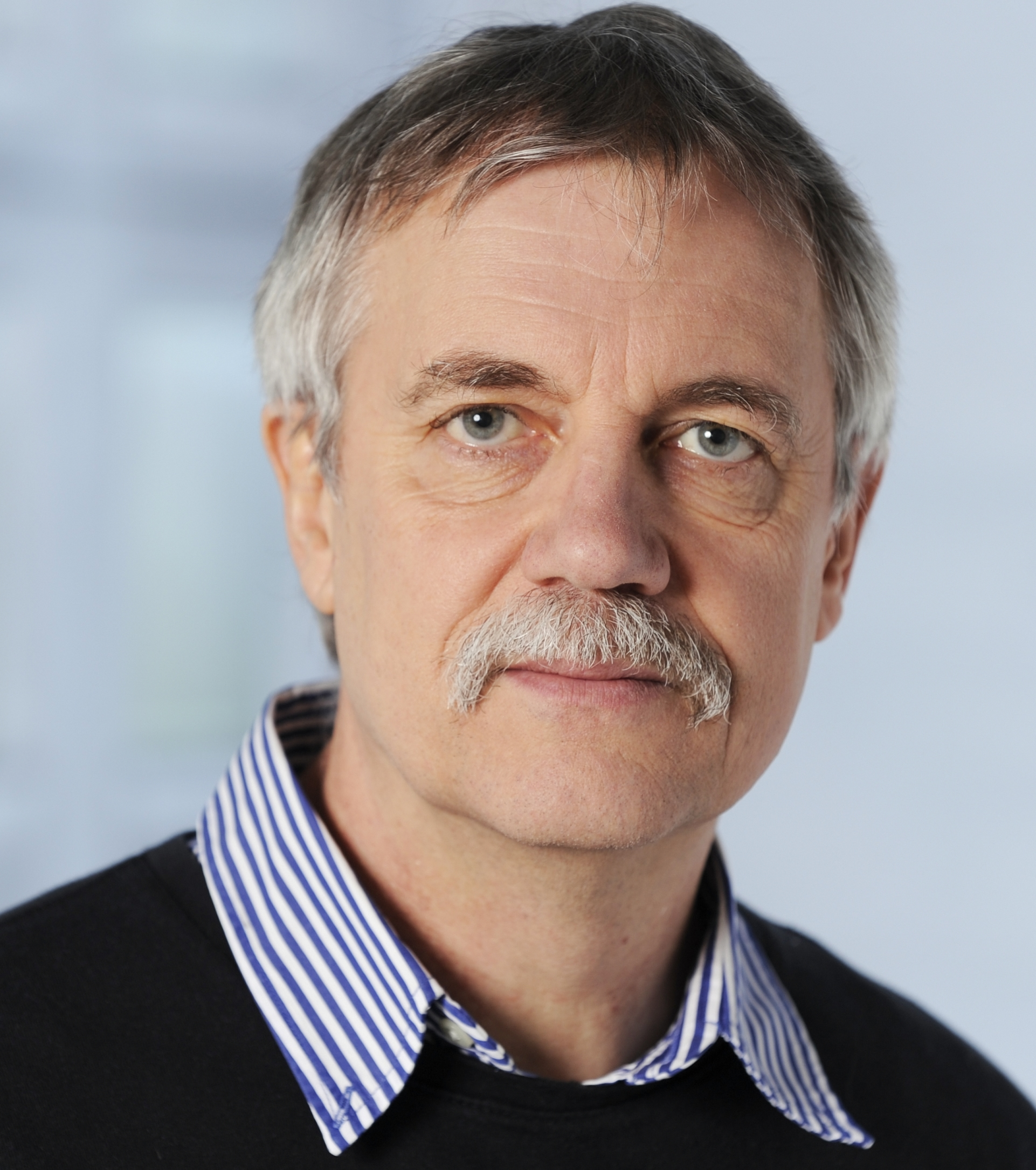 |
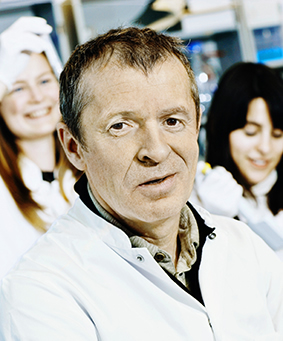 |
 |
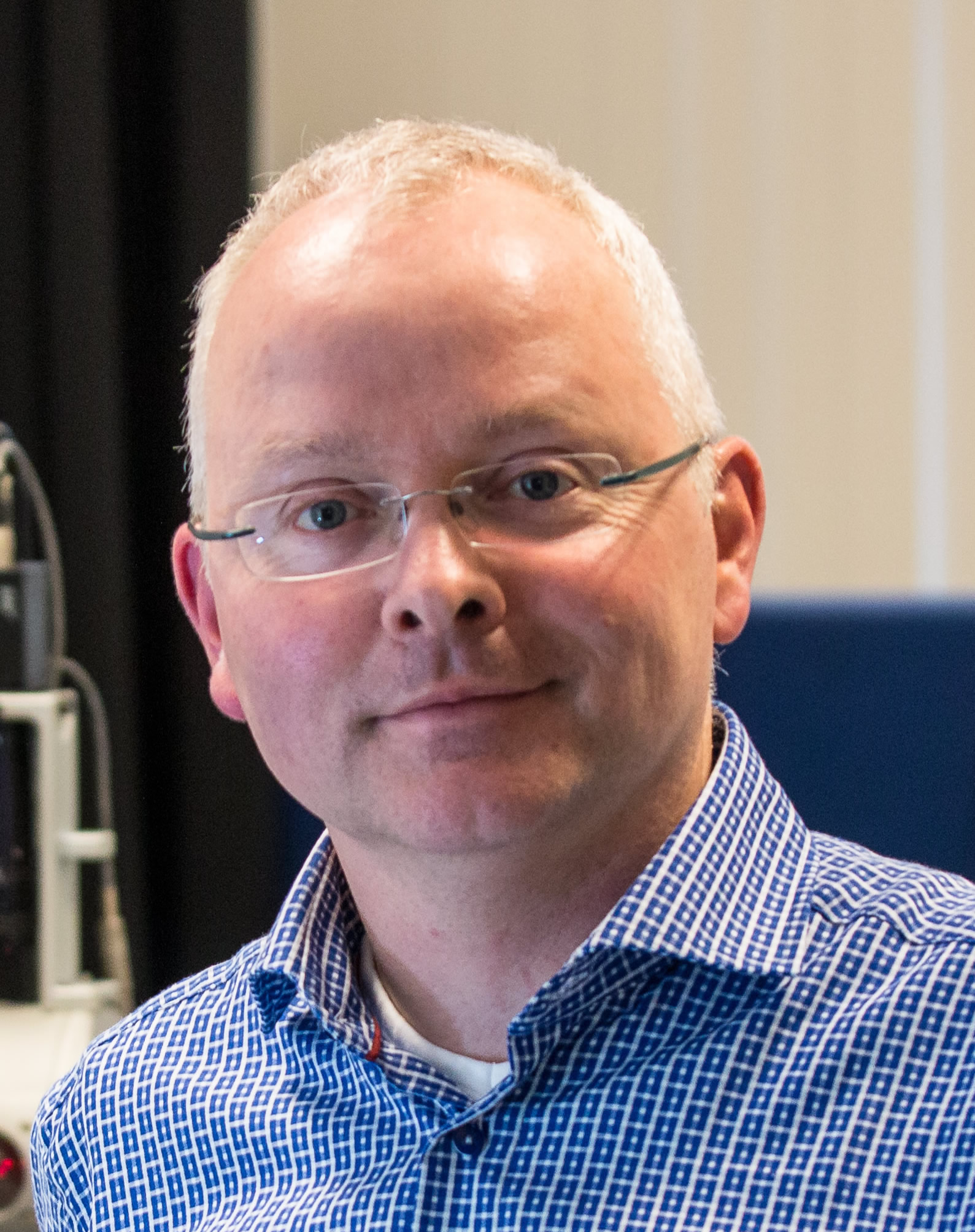 |
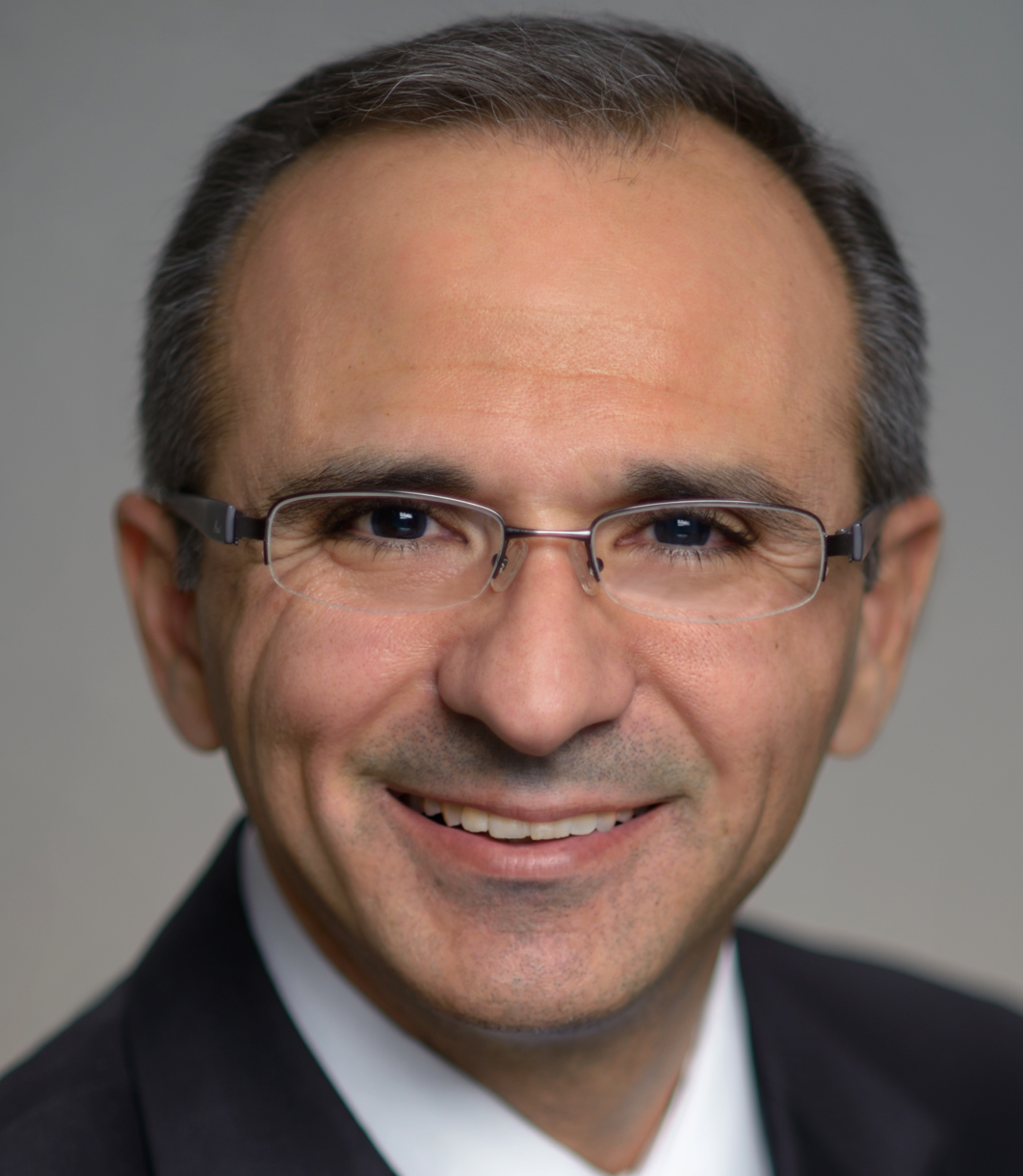 |
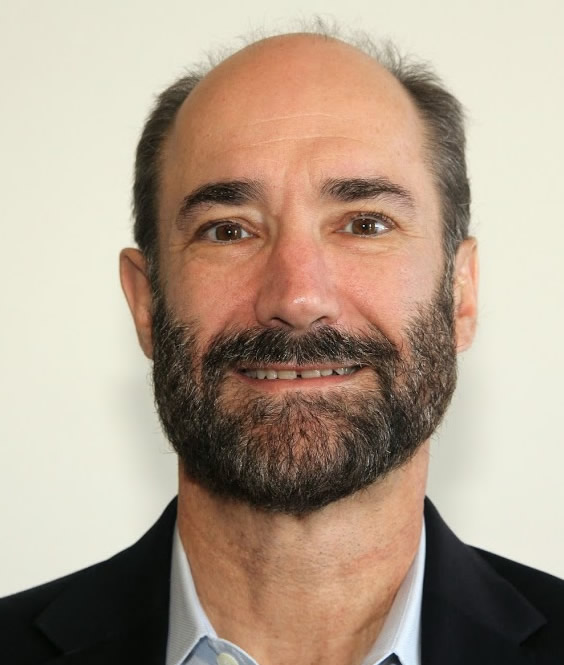 |
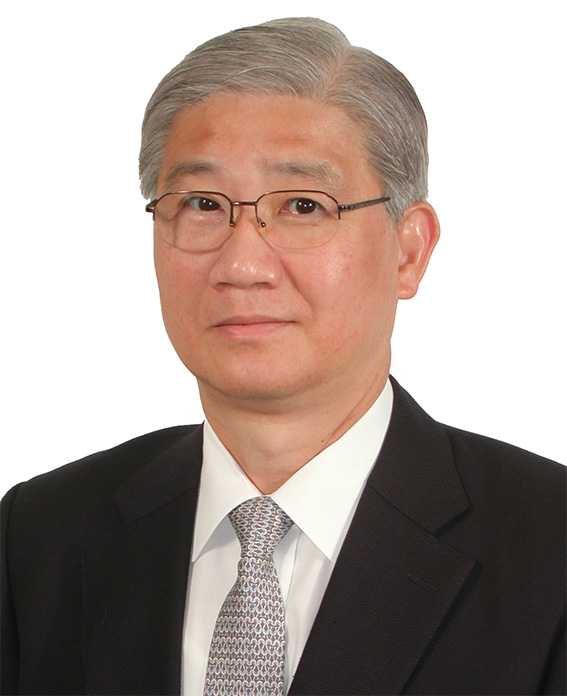 |
| Ruedi Aebersold | Henrik Clausen |
Jennifer Van Eyk | Albert J.R. Heck | Henry Rodriguez | Michael Snyder | Pan-Chyr Yang |
Department of Cellular and Molecular Medicine, University of Copenhagen, Denmark Lecture title: Glycoproteomics – A genetic approach to deconstruction and simplification of protein glycosylation Biography DDS (1981) and DSc (1990). Worked in the glycobiology field for 30+ years focusing on structure, biosynthesis and genetic regulation of complex carbohydrates. Studied with professor Sen-Itiroh Hakomori in Seattle (1983-90) on blood group related carbohydrates, glycosyltransferases and genes. Founded a glycobiology research group at the Faculty of Health and Medical Sciences, University of Copenhagen, Denmark, in 1990, and since 2007 head of a Center of Excellence in Glycomics funded by University of Copenhagen and since 2012 the Danish National Research Foundation. Past member of scientific advisory boards and consultant for Neose Technologies and ZymeQuest. National representative for International Glycoconjugate Organization (IGO) and member of the Royal Royal Danish Academy of Sciences and Letters. Research focus is primarily protein glycosylation, where we have isolated, cloned, and expressed many of the human glycosyltransferases involved in the biosynthesis. Our interests are broad and include basic understanding of genetic regulation, and biosynthesis of protein glycosylation, Immunity to glycans and glycoproteins, consequences of deficiencies in glycosylation in diseases, and biomedical applications. We have developed strategies to isolate and characterize O-glycoproteomes of cells by use of nuclease-mediated gene engineering and a combination of lectin chromatography and mass spectrometry (SimpleCells). Applied broad genetic glycoengineering of mammalian cells for deconstruction of glycosylation capacities and design of optimal platform cells for recombinant therapeutics. We have further developed glycopeptide arrays with comprehensive chemoenzymatic synthesis of glycopeptides, and we are now developing cell-based glycan arrays. |
Cedars Sinai Medical Center, USA Lecture title: Precision Medicine: proteomics in the context of health assessment and systems biology Biography Dr. Van Eyk is a Professor of Medicine at Cedars-Sinai Medical Center, Director of the Basic Science Research in the Barbra Streisand Woman’s Hearth Center and Director of the new Advance Clinical Biosystems Institute where she recently moved from Johns Hopkins University. The Van Eyk laboratory’s central philosophy is that compelling biological and clinical questions drive innovation through development, optimization and adaption of proteomic technologies, functional analysis, and large-scale data handling. The primary research focuses i) on understanding the molecular mechanism underlying acute and chronic disease and treatment therapies and ii) in the development of clinically robust circulating biomarkers focusing primarily on cardiovascular disease and women’s health. |
Utrecht University and Netherlands Proteomics Centre, The Netherlands Lecture Title: Complementary Methods for Probing Protein Assemblies and Interactions Biography Albert J.R. Heck (Utrecht University) is scientific director of the Netherlands Proteomics Centre. A large emphasis of Heck’s group is on the development and applications of advanced mass spectrometry based proteomics technologies. Heck introduced TiO2 and Ti4+-IMAC based technologies for phospho-enrichment. Heck pioneered the use of alternative proteases and hybrid peptide fragmentation techniques (e.g. EThcD). Heck also introduced 15N labeling in multicellular organisms and the cost-effective dimethyl labeling. Heck’s proteomics research focuses for a large part on stem cells. These studies aim at the understanding of embryonic, adult an induced pluripotent stem cell differentiation, with the intention to use these cells for regenerative purposes. Besides the proteomics efforts, the group of Heck is also known for its expertise in mass spectrometry based structural biology, analyzing intact proteins and protein complexes. The Heck-lab developed therefore dedicated instruments, with most recently a new high-mass Orbitrap, a serious breakthrough for top-down proteomics and native mass spectrometry. Heck is recipient of awards such as the HUPO Discovery Award (2013), and the Proteomics Pioneer Award from the European Proteomics Association (EuPA, 2014). In 2016 he received the ACS Frank H. Field and Joe L. Franklin Award. In 2014 he became elected member of EMBO and the Royal Netherlands Academy of Sciences and Arts (KNAW). |
National Cancer Institute, National Institutes of Health, USA Lecture Title: Proteogenomic Analysis of Cancer: New Opportunities in Cancer Biology and Precision Medicine Biography Dr. Henry Rodriguez is Director of the Office of Cancer Clinical Proteomics Research at the National Cancer Institute (NCI), National Institutes of Health (NIH). He has been director for 10 years, before which he was Director of the Cell & Tissue Measurements Group, Director of the Tissue Engineering program, Principal Scientist in the DNA Damage and Repair program, and Program Analyst (Office of the Director), at the National Institute of Standards and Technology (NIST). Dr. Rodriguez’s research has focused on understanding mechanisms of cancer (cancer research and treatment) and age-related diseases, including the development of molecular-based technologies in basic and clinical science. During his fellowships, he elucidated mechanisms on how tissues that are chronically infiltrated with leukocytes could develop malignancies through the activation of K-ras oncogene. He also developed a method in isolating genes that led to increasing the sensitivity of a DNA-based technology in mapping oxidative DNA damage to any gene in the genome. His research showed how the principle determinant of local DNA damage from oxidative stress is likely the primary DNA sequence. At NIST, Dr. Rodriguez demonstrated how LC/MS was suited for identifying and quantifying DNA lesions at clinically relevant levels, and elucidated the mechanism of damage of anti-cancer agents. This work is pioneering in that it represented the first application of LC/MS to the measurement of oxidative DNA damage. Dr. Rodriguez also developed a standard reference material that enabled laboratories to benchmark/harmonize measurements. At the NCI, Dr. Rodriguez has played an irreplaceable role to the success of NCI’s signature clinical proteomics initiative (Clinical Proteomic Tumor Analysis Consortium) and the long-term strategic plan in proteomics biomedical research (basic and clinical). Dr. Rodriguez also spearheaded the development of the NCI Antibody Characterization Laboratory. Dr. Rodriguez’s honors include Presidential Citation, American Association for Clinical Chemistry; NIH Director's Award, National Institutes of Health; NCI Director’s Award, National Cancer Institute, NIH; Wertheim Global Medical Leadership Award, Herbert Wertheim College of Medicine at Florida International University; Leveraging Collaboration Award, US Food and Drug Administration; Distinguished Alumnus Award, Florida International University; and Young Scientific Investigator Award, Sigma Xi Scientific Research Society. Dr. Rodriguez serves on the Editorial Boards of Clinical Proteomics, Annals of Laboratory Medicine, Scientific Data (Nature Publishing Group), and the Editorial Advisory Board of Journal of Proteome Research. He has authored greater than 200 publications, which include 113 original research papers in peer-reviewed journals, reviews and chapters, including co-editing a best-selling book entitled Oxidative Stress and Aging: Advances in Basic Science, Diagnostics and Intervention. Dr. Rodriguez received his B.S. in biology/chemistry and M.S. in biology/toxicology from Florida International University, Ph.D. in cell and molecular biology from Boston University, and M.B.A. in finance and management from Johns Hopkins University Carey Business School. Research fellowships were conducted at The Scripps Research Institute (Department of Immunology) and at City of Hope National Medical Center (Department of Medical Oncology). |
Stanford University School of Medicine, USA Lecture Title: Managing Health and Understanding Disease Using Big Data Biography Michael Snyder is the Stanford Ascherman Professor and Chair of Genetics and the Director of the Center of Genomics and Personalized Medicine. Dr. Snyder received his Ph.D. training at the California Institute of Technology and carried out postdoctoral training at Stanford University. He is a leader in the field of functional genomics and proteomics, and one of the major participants of the ENCODE project. His laboratory study was the first to perform a large-scale functional genomics project in any organism, and has developed many technologies in genomics and proteomics. These including the development of proteome chips, high resolution tiling arrays for the entire human genome, methods for global mapping of transcription factor binding sites (ChIP-chip now replaced by ChIP-seq), paired end sequencing for mapping of structural variation in eukaryotes, de novo genome sequencing of genomes using high throughput technologies and RNA-Seq. These technologies have been used for characterizing genomes, proteomes and regulatory networks. Seminal findings from the Snyder laboratory include the discovery that much more of the human genome is transcribed and contains regulatory information than was previously appreciated, and a high diversity of transcription factor binding occurs both between and within species. He has also combined different state-of–the-art “omics” technologies to perform the first longitudinal detailed integrative personal omics profile (iPOP) of person and used this to assess disease risk and monitor disease states for personalized medicine. He is a cofounder of several biotechnology companies, including Protometrix (now part of Life Technologies), Affomix (now part of Illumina), Excelix, and Personalis, and he presently serves on the board of a number of companies. |
National Taiwan University, Taiwan Lecture Title: Precision Lung Cancer Therapy: Current and Beyond Biography Dr. Yang currently is the President of National Taiwan University and Professor in the Department of Internal Medicine, National Taiwan University College of Medicine. His major research interests are pulmonary and critical care medicine, molecular and cellular biology, lung cancer genomics and personalized cancer therapy. He was elected member of Academia Sinica in 2006 because of his contributions in leading the translational research and implementation of precision therapy for lung cancer in Taiwan, which have significantly improved the survival in lung cancer patients. His research group identified novel genes and pathways that associated with lung cancer progression. They established new platform for development of lung cancer stem cell directed therapy and discovered the autocrine-paracrine interaction between the lung cancer stem cell with cancer microenvironment. They also identified specific gene expression and microRNA biomarkers that might be beneficial for precision therapy of lung cancer patients. |

